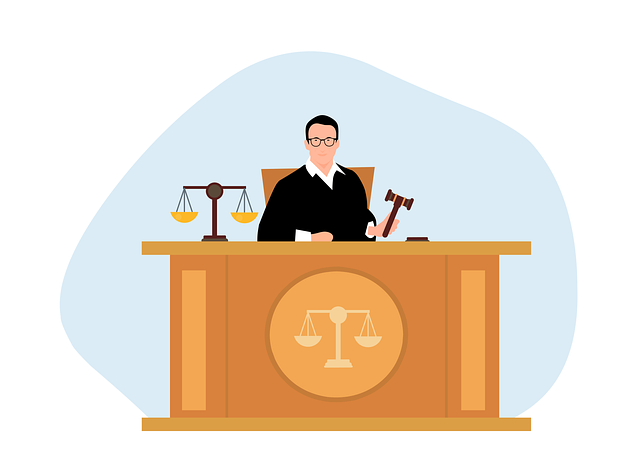When planning your legacy, it's essential to consider how estate taxes will impact your assets and heirs. Effective estate planning under the guidance of legal and financial experts can help minimize these taxes by utilizing strategies like making lifetime gifts, establishing trusts, and designating charitable bequests, all of which are a matter of public record and subject to judicial scrutiny in the courtroom setting. These steps are crucial for complying with current tax laws, which are updated annually by the IRS, and for maximizing tax savings. Estate planners must stay abreast of both legal precedents and tax law changes to navigate the court system's requirements and ensure that your estate planning strategy is up-to-date and effective. Trusts, particularly irrevocable trusts, are key tools in this process, as they can significantly reduce estate tax exposure if carefully structured and managed. Additionally, understanding state-specific tax laws and utilizing tax exemptions and annual gift exclusions can further minimize tax liabilities. By leveraging advanced strategies like Charitable Remainder Trusts (CRTs) and Charitable Lead Trusts (CLTs), you can not only reduce estate taxes but also fulfill philanthropic goals, all within the legal framework overseen by the courtroom. Professional guidance from an experienced estate planning attorney is indispensable in achieving these objectives and securing your assets for your intended heirs.
Navigating the complexities of estate taxes can be a daunting task for many. This article delves into prudent strategies that can minimize estate tax liabilities, guiding individuals through the legal framework and offering expert planning tactics. By understanding the nuances of estate tax law and leveraging tools such as trusts and bequests, you can ensure your legacy is preserved and efficiently passed on to your heirs, often avoiding unnecessary courtroom entanglements. Learn how to safeguard your assets with informed planning for a secure financial future.
- Navigating Estate Taxes: Strategies for Minimization Before Entering the Courtroom
- Understanding the Legal Framework Governing Estate Taxes and Their Implications
- Expert Planning Tactics to Reduce Estate Tax Liability
- Leveraging Trusts and Bequests in Estate Tax Minimization Efforts
Navigating Estate Taxes: Strategies for Minimization Before Entering the Courtroom

When contemplating the legacy one wishes to leave behind, minimizing estate taxes becomes a critical aspect of estate planning. Proactive measures can significantly reduce the tax burden that might otherwise be levied upon an individual’s death. Engaging with legal and financial experts is essential to devise strategies tailored to your unique circumstances. These professionals can guide you through various methods to shelter assets, such as utilizing lifetime gifts, establishing trusts, and making bequests to charitable organizations, all of which can serve to lower the estate’s taxable value.
In the courtroom, the application of estate taxes is a matter of public record, subject to scrutiny and interpretation by the judiciary. Therefore, it is imperative to ensure that your estate plan aligns with current tax laws and reflects the most advantageous tax-saving strategies. This may involve careful timing of distributions, selecting appropriate beneficiaries for accounts, and considering the tax implications of different asset ownership structures. By meticulously planning ahead and consulting with experts well before a courtroom setting, individuals can effectively minimize estate taxes and protect their assets for the intended heirs.
Understanding the Legal Framework Governing Estate Taxes and Their Implications

Navigating estate taxes necessitates a thorough understanding of the legal framework established by national and state regulations. The Internal Revenue Service (IRS) dictates federal estate tax laws, which include thresholds and rates that vary yearly. These rules determine when and to whom estate taxes apply upon an individual’s passing. It is imperative for individuals to be aware of these guidelines as they can significantly impact the distribution of their assets.
The courtroom plays a pivotal role in interpreting and upholding estate tax laws, resolving disputes that arise from contested wills or trusts, and ensuring compliance with the established tax regulations. Estate planners must be adept at anticipating how judicial interpretations of these laws could affect their clients’ estates. As such, engaging in proactive planning with a focus on minimizing estate taxes often involves strategies like creating irrevocable trusts, gifting during one’s lifetime, and selecting the appropriate beneficiaries to mitigate the tax burden and ensure the legacy is preserved as intended.
Expert Planning Tactics to Reduce Estate Tax Liability

navigating the complexities of estate planning often hinges on implementing strategic tactics to minimize estate taxes and ensure one’s assets are distributed according to their wishes. One key approach is to leverage the unified credit exclusion, which allows individuals to transfer a substantial amount at death tax-free. By understanding the nuances of this exemption and aligning with current tax laws, individuals can effectively shield a significant portion of their estate from taxation. Additionally, individuals should consider the potential benefits of gifting during their lifetime. This method can reduce the taxable estate size and is subject to certain annual exclusion amounts per recipient. It’s advisable to consult with estate planning professionals who are well-versed in the latest tax laws and courtroom precedents, as these strategies can significantly influence the outcome of one’s estate plan and the financial security of their heirs.
Furthermore, trusts can play a pivotal role in reducing estate tax liability. A properly structured irrevocable trust can remove assets from the taxable estate, ensuring they are not subject to estate taxes upon the grantor’s death. These trusts must be carefully crafted and often require ongoing management to maintain their tax-advantaged status. Individuals should also be aware of the potential for state-specific tax implications, as some states impose their own inheritance or estate taxes separate from federal regulations. Engaging with tax experts and legal counsel can provide clarity on these matters and help design a comprehensive strategy tailored to one’s unique financial situation.
Leveraging Trusts and Bequests in Estate Tax Minimization Efforts

In the realm of estate planning, leveraging trusts and bequests is a prudent approach to minimize estate taxes, thereby safeguarding a significant portion of one’s legacy from burdensome tax liabilities. Trusts can serve as effective vehicles for transferring assets, allowing individuals to dictate the terms under which their beneficiaries will receive the assets. By placing property in a trust and naming an impartial trustee, estate owners can often reduce the overall taxable value of their estates. This strategic placement is particularly advantageous when considering that estate taxes are determined by the court, which values the estate’s assets at fair market value at the time of the decedent’s death.
Bequests, on the other hand, are gifts made through a will or other legal documents, and their structure can also influence tax outcomes. A carefully crafted bequest strategy can direct specific assets to charitable organizations, thereby reducing the size of the taxable estate. The use of charitable remainder trusts (CRTs) or charitable lead trusts (CLTs) can further optimize tax implications by providing a stream of income to beneficiaries while also fulfilling philanthropic goals. In essence, the combination of trusts and bequests, tailored to individual circumstances and legal frameworks, offers a multifaceted strategy for navigating the complexities of estate tax minimization. Engaging with a knowledgeable estate planning attorney is essential to ensure that these instruments are implemented effectively within the legal constraints set forth by the court.
In concluding our exploration of estate planning, it’s clear that with expert guidance and strategic foresight, individuals can significantly minimize estate taxes. The legal framework surrounding these taxes is complex, as discussed, but understanding its intricacies, particularly in relation to courtroom proceedings, is pivotal. By employing advanced planning tactics, such as the establishment of trusts and the thoughtful use of bequests, one can effectively reduce potential tax liabilities. It’s advisable for individuals to engage with qualified professionals who specialize in this area of law to ensure their estate plan aligns with their financial objectives and legal requirements. With diligent planning, the impact of estate taxes on your legacy can be mitigated, allowing your assets to benefit your intended recipients as intended.
